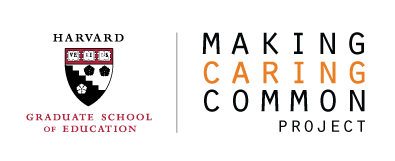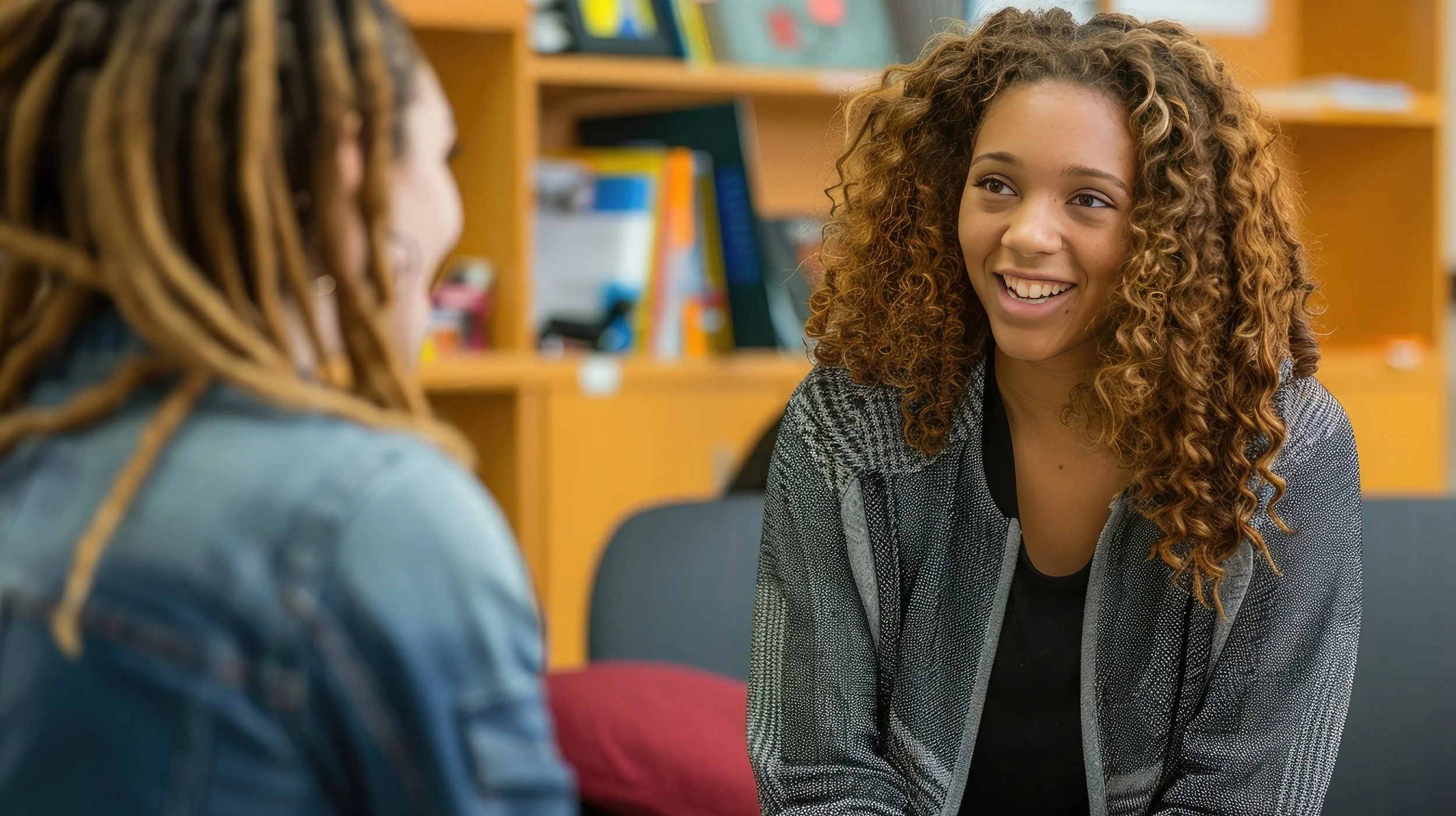he websites below complement our report Leaning Out and offer useful programs, research, resources, and/or activities to promote girls’ and women’s equity and empowerment. Some of the descriptions listed below have been pulled from organizational websites.
Read MoreA wide variety of programs and interventions directly or indirectly foster leadership skills in girls, varying extensively in activities, length, and research base. These programs range from classic girls-only activity based programs such as the Girl Scouts and Girls Inc. to more targeted programs and curricula specifically developed to build leadership. Opportunities span a multitude of interests, many representing increasing efforts to engage girls in fields in which women continue to be underrepresented (e.g. STEM, public office).
Given the wide variety of programs and interventions that foster leadership skills in girls and the limited research on efficacy, it can often be challenging to select a program. Based on research and the wisdom of practitioners, and based in part on recommendations from the Girl Scout Research Institute, we have created the following easy to-use guide to help parents and educators identify high quality girls’ leaderships programs.
Read MoreGender biases and/or discrimination is surprisingly common in many schools and sometimes happens beneath school staff’s radar. As adults, we can shed light on these important topics that often go undiscussed at school. These discussions can be challenging. For some youth, this is an immensely personal or even heated topic that brings up questions of equality and privilege. Others may question whether gender biases even exist. Finally, the idea that biases can be implicit—and discrimination unconscious—may itself be a novel concept to some teenagers.
Fortunately, the payoff in broaching these topics is huge. By allowing children to explore this topic, share ideas for improvement, and participate in community-building and empathy-promoting activities, you are taking steps towards ensuring that your classroom or school is a place where everyone is respected, supported, and empowered.
Read MoreThis webinar from Share My Lesson explores our report The Talk: How Adults Can Promote Young People’s Healthy Relationships and Prevent Misogyny and Sexual Harassment, which highlights these issues and offers insight into how adults can begin to have meaningful and constructive conversations with young people to promote healthy relationships and prevent misogyny and sexual harassment in their lives.
Note: Registration is free and the webinar may fulfill one hour of PD credit.
Read MoreThe following is a partial list of resources for educators interested in preventing misogyny and sexual harassment.
These resources offer useful activities, information, websites, and/or programs/curricula. We’ve tried to identify key resources, but there are a vast number of resources on these various topics, and we surely missed some. We also want to underscore that while we think each of the identified resources contains valuable information, we do not endorse all the recommendations/views in these resources. Some of the resource descriptions listed below have been pulled from organizational websites.
Read MoreMany teachers have heard or seen students saying things that are misogynistic, objectifying, insensitive, or disrespectful based on gender, sexuality, or sexual orientation. Because these comments may catch us off guard and are often sensitive in nature, many adults struggle to know what to say in the moment. By thinking through and practicing our responses in advance, we can be prepared the next time we hear these comments in our schools.
Below are practice scenarios for teachers based on real-life student conversations and interactions. These scenarios can be reviewed by individual teachers or as part of a professional development program. It may be particularly powerful for teachers to work in pairs or small groups to discuss and practice potential responses.
Read MoreThis audit is intended to help educators reflect on the policies and practices of their school related to young people’s healthy romantic relationships, misogyny and sexual harassment, and assault. It is intended to help you answer these questions: Are we doing what is needed to prevent harassment and promote healthy relationships? What more could we do? Please answer each of the following questions about your school by checking “yes,” “no,” or “I’m not sure.” Please also reflect on the “evidence” for your answer—“how you know” the answer or what the answer “looks like” in your school.
Read MoreEducators can use these low-burden tips for preventing bullying and making schools more caring, respectful places.
Read MoreEducators have an important role to play in preventing bullying and promoting social, emotional, and ethical capacities in students.
These resources offer useful activities, information, websites, programs, and curricula. While we think each of the identified resources contains valuable information, we do not endorse all the recommendations or views in these resources. Some of the resource descriptions listed below have been pulled from organizational websites.
Read MoreWith this light-lift strategy, students will dive into narratives of self and others to offer more nuanced perspectives and feelings around people’s stories. The narratives will mirror the “Humans of New York” series, and students will study a few of them to get a sense of the expectations (e.g., interviewing other students or faculty members). Humans of Your School provides students with opportunities to connect with those different from them, to listen to different stories and try to understand their different perspectives, and to appreciate differences while also finding commonalities.
Read MoreHow can educators support LGBTQIA-identifying middle and high school students and create more inclusive school communities? The list below offers a sample of resources and links to websites for teachers and their students.
Making Caring Common (MCC), a project of the Harvard Graduate School of Education, helps educators, parents, and communities raise children who are caring, responsible to their communities, and committed to justice.
Read MoreThere are many programs, interventions, services, and resources available that can support student well-being and the development of positive school culture and climate. Before adopting new programs or substantially changing current practices, it is helpful to review and consider school-based programs and resources that are already in place. Doing so helps ensure that services are not duplicative of each other and strategically align to support your school’s vision.
Resource mapping is a strategy for identifying and analyzing the programs, people, services, and other resources that currently exist in your school. This information can help school leaders better assess the needs of the school and to make informed decisions about where to focus change efforts.
By the end of this activity, you will have a deeper understanding of the key programs and resources related to well-being and culture that your school is already utilizing, which will give you a solid foundation for planning.
Read MoreA growing body of research supports the potential benefits of mindfulness, including stress reduction, emotion regulation, better relationship satisfaction, and improved memory and attention.
Applications of mindfulness, the practice of focusing our attention in a particular way, can be relatively easy to implement and are not time intensive. Given the benefits and feasibility, mindfulness has become increasingly popular across a variety of fields, including medicine, psychology, business, and more recently, in education.
Evaluations of school-based mindfulness practices have shown positive findings, including increased attention, self-control, class participation, and respect for others. Mindfulness practices can also serve as a powerful classroom management tools, reducing stress for teachers and students. Many mindfulness activities can be easily interwoven into routine classroom activities and lessons. They can also be extremely useful during transitions, for example, settling down after beginning a new class. Given the potential benefits and the ease of implementing mindfulness practices, these strategies are well-suited for schools.
While there are many methods of practicing mindfulness, we have provided the following short practices to serve as an introduction. We have also included a list of resources where you may find additional information about mindfulness as well as other mindfulness exercises.
Read MoreDigital citizenship is a holistic and positive approach to helping children learn how to be safe and secure, as well as smart and effective participants in a digital world. That means helping them understand their rights and responsibilities, recognize the benefits and risks, and realize the personal and ethical implications of their actions.
This resource list offers useful activities, information, websites, programs, and curricula. While we think each of the identified resources contains valuable information, we do not endorse all the recommendations or views in these resources. Some of the resource descriptions listed below have been pulled from organizational websites.
Read MoreToo often the elderly are invisible to others, and perhaps especially to teenagers. As adults, we can teach students to show respect and to demonstrate compassion towards the elderly by giving students opportunities to better understand the impact of discrimination or apathy toward the elderly. We can also help students develop empathy and practice compassion and respect for the elderly in their day-to-day lives.
The following case study includes a short story from multiple viewpoints and a set of questions designed to facilitate discussion about respecting and caring for the elderly and the importance of maintaining commitments and volunteering for selfless reasons.
Read More














